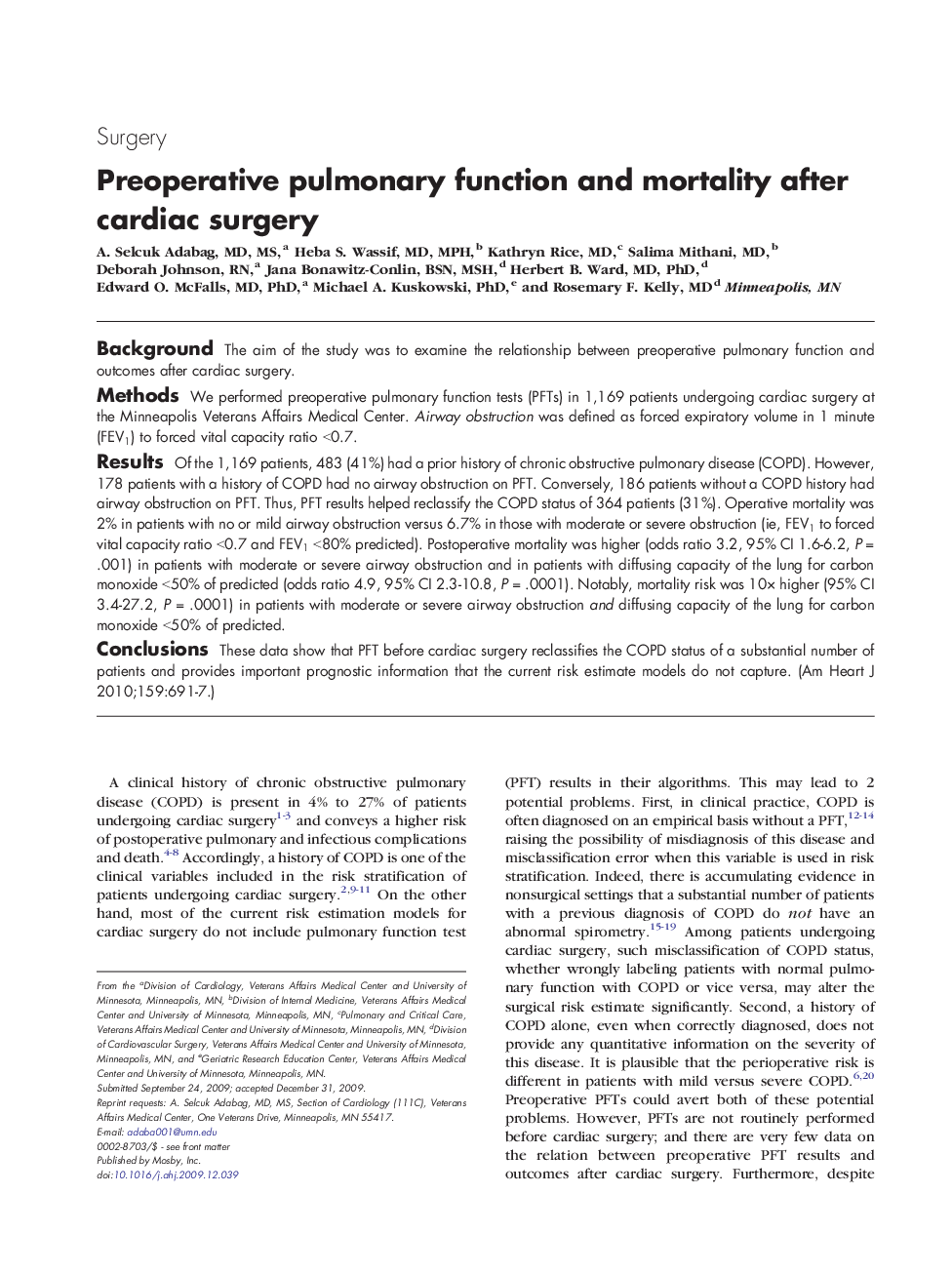| Article ID | Journal | Published Year | Pages | File Type |
|---|---|---|---|---|
| 2851150 | American Heart Journal | 2010 | 7 Pages |
BackgroundThe aim of the study was to examine the relationship between preoperative pulmonary function and outcomes after cardiac surgery.MethodsWe performed preoperative pulmonary function tests (PFTs) in 1,169 patients undergoing cardiac surgery at the Minneapolis Veterans Affairs Medical Center. Airway obstruction was defined as forced expiratory volume in 1 minute (FEV1) to forced vital capacity ratio <0.7.ResultsOf the 1,169 patients, 483 (41%) had a prior history of chronic obstructive pulmonary disease (COPD). However, 178 patients with a history of COPD had no airway obstruction on PFT. Conversely, 186 patients without a COPD history had airway obstruction on PFT. Thus, PFT results helped reclassify the COPD status of 364 patients (31%). Operative mortality was 2% in patients with no or mild airway obstruction versus 6.7% in those with moderate or severe obstruction (ie, FEV1 to forced vital capacity ratio <0.7 and FEV1 <80% predicted). Postoperative mortality was higher (odds ratio 3.2, 95% CI 1.6-6.2, P = .001) in patients with moderate or severe airway obstruction and in patients with diffusing capacity of the lung for carbon monoxide <50% of predicted (odds ratio 4.9, 95% CI 2.3-10.8, P = .0001). Notably, mortality risk was 10× higher (95% CI 3.4-27.2, P = .0001) in patients with moderate or severe airway obstruction and diffusing capacity of the lung for carbon monoxide <50% of predicted.ConclusionsThese data show that PFT before cardiac surgery reclassifies the COPD status of a substantial number of patients and provides important prognostic information that the current risk estimate models do not capture.
